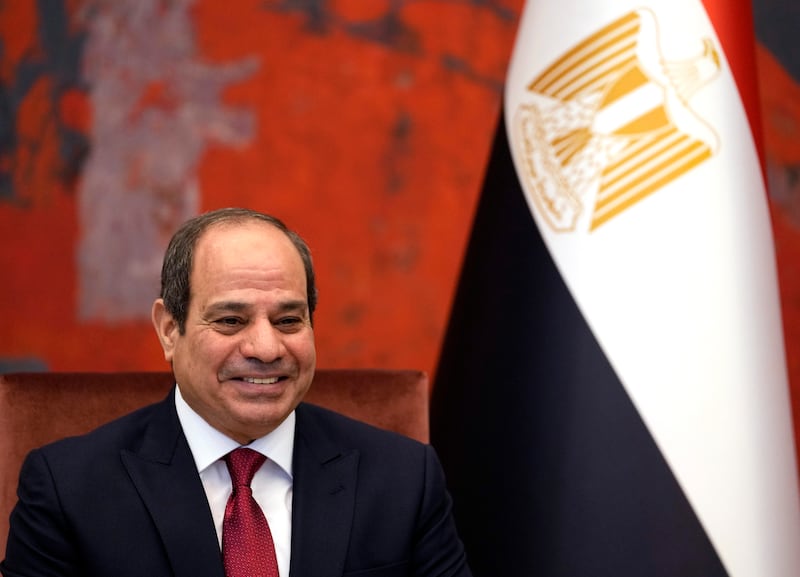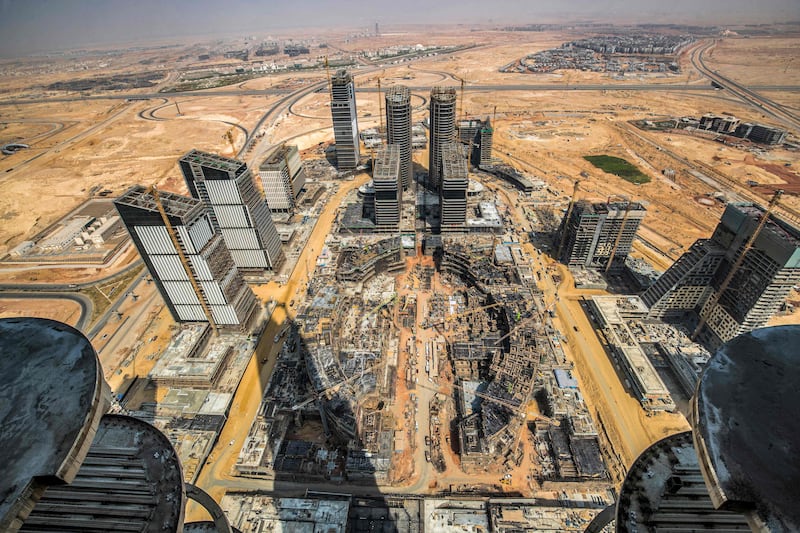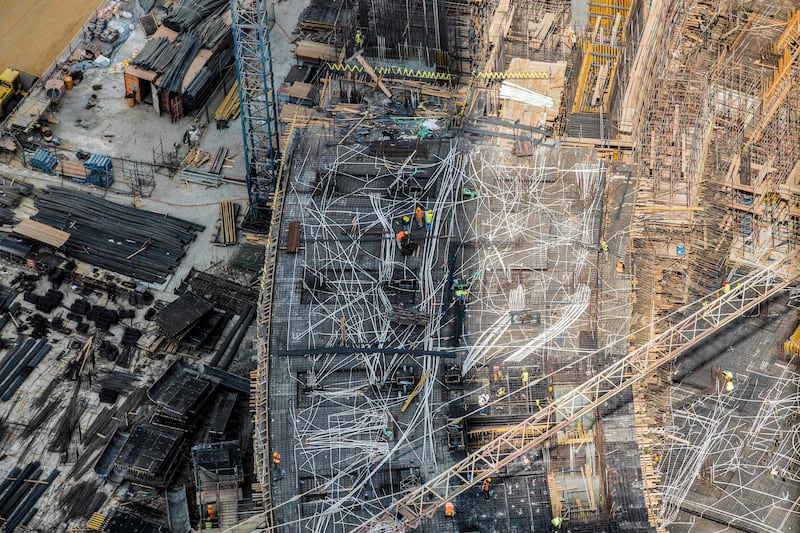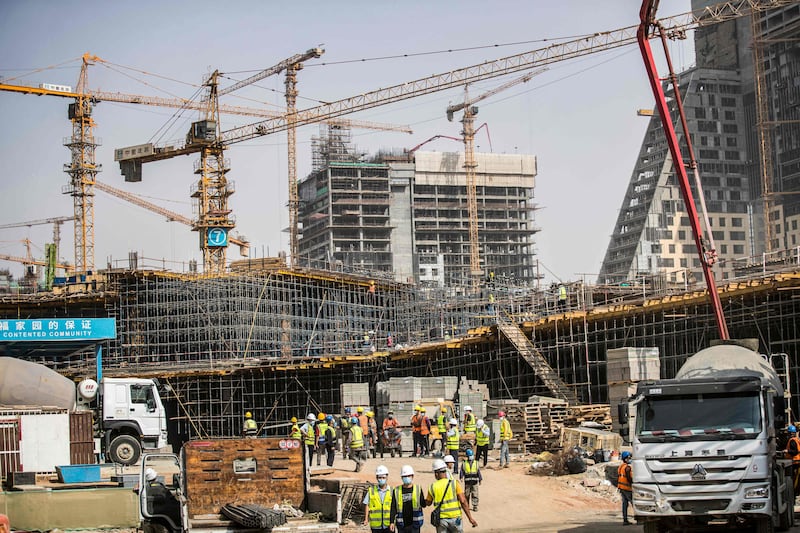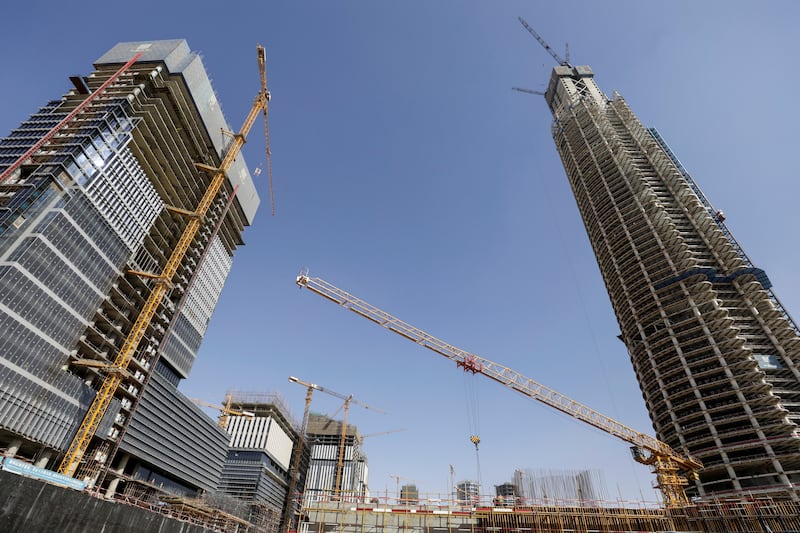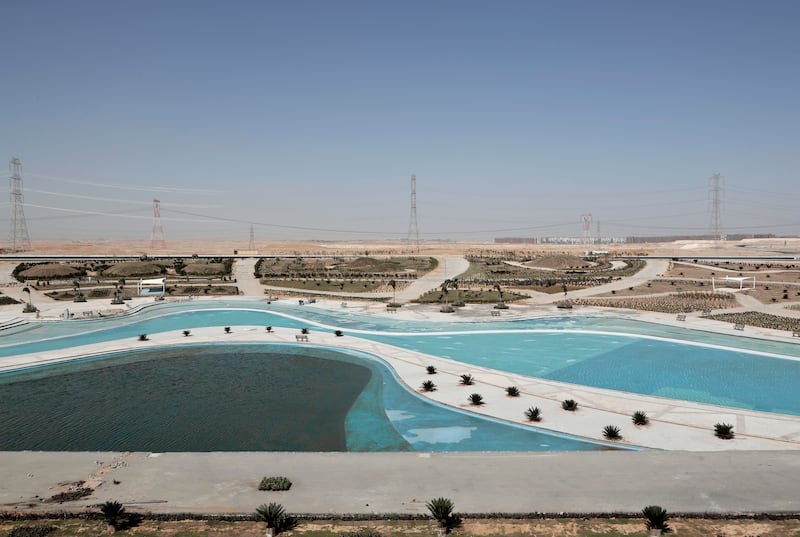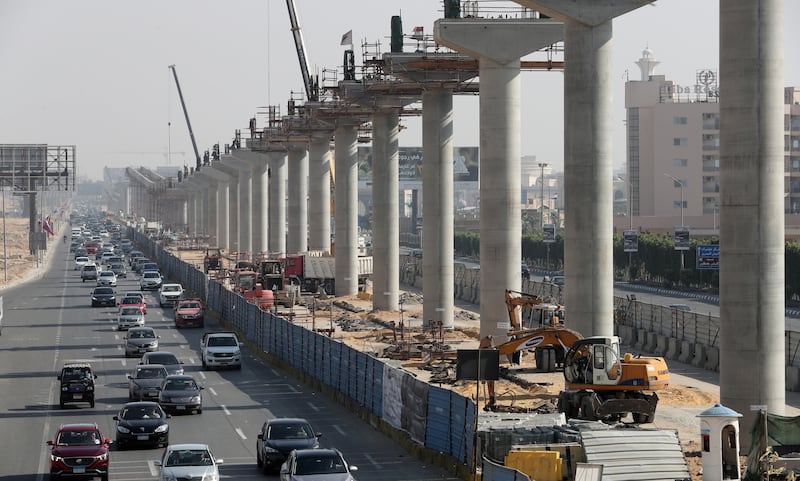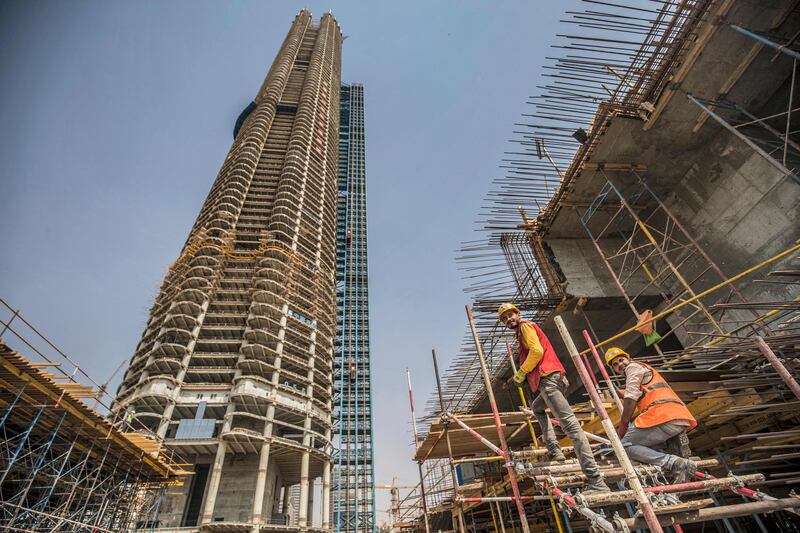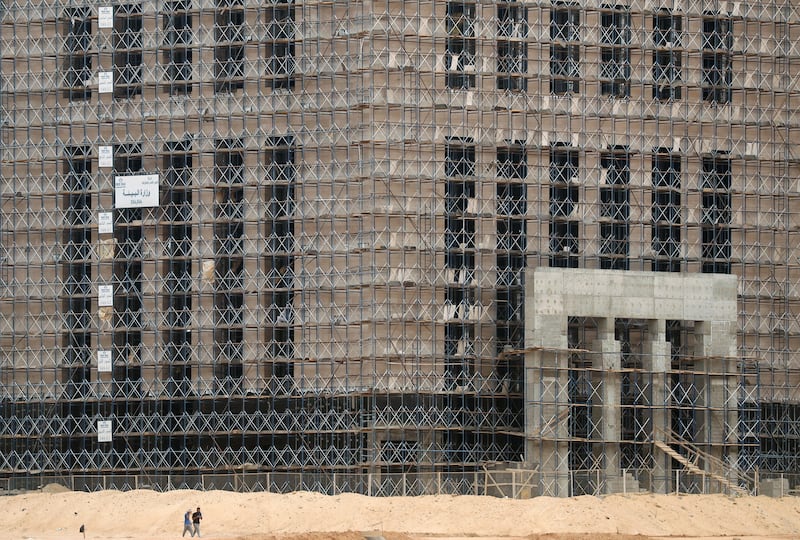Egyptian President Abdel Fattah El Sisi led an international call for the world's largest emitters of greenhouse gases to do the most to mitigate the effects of climate change as the country gears up to host the Cop27 summit in November.
As host of the UN climate change summit in Sharm El Sheikh in November, Egypt has pushed to move “from pledges to implementation” and has framed Cop27 as an “African Cop” to support the continent's needs and ambitions.
“Only 20 countries are responsible for about 80 per cent of the effects of climate change. I think it is fair and objective that these nations that bear the largest responsibility significantly contribute to supporting developing countries,” Mr El Sisi said on Wednesday, just 60 days before the Cop27 summit starts.
“We need a comprehensive vision to support African nations in their effort to adjust to climate change,” he said in Cairo at a gathering of climate leaders for the International Co-operation Forum.
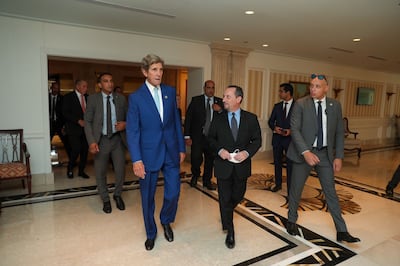
High-profile speakers at the opening of the forum, including US Special Presidential Envoy for Climate John Kerry, Glasgow Financial Alliance for Net Zero (Gfanz) chairman Mark Carney and UN Deputy Secretary General Amina Mohamed, all expressed the same message: that financing is the key issue and developing countries should not have to bear the cost.
The three-day conference, taking place in the New Administrative Capital east of central Cairo, includes a meeting of African ministers of finance, economy and environment.
Through panels, workshops and round-table discussions, it will focus on the mobilisation of finance and access to finance, financing mitigation and adaptation projects and national actions.
The Cop27 president, Egypt's Foreign Minister Sameh Shoukry, said that the global economic difficulties and geopolitical situation made it more important than ever to co-operate at all levels to “achieve a paradigm shift”.
“The Egyptian presidency of Cop27 will adopt a clear compromise to fill the gaps in the world mechanism to deal with climate change. We hope that the Sharm El Sheikh conference will be a turning point to realise ambitious measures to reduce emissions and bolster efforts towards adapting to climate change,” Mr Shoukry said.
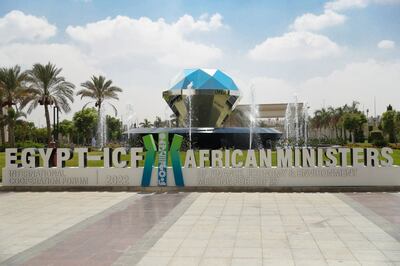
The ICF, in its second year, is important to make sure “the needs and aspirations of Africa are on the international agenda” before Cop27, said Minister of International Co-operation Rania Al Mashat.
Partners, particularly in the private sector, are needed to support Africa's green transformation in line with the UN Sustainable Development Goals and the African Development Agenda 2063, she said.
“It’s time for implementation at scale and with a sense of urgency” as countries are “simultaneously facing the fury of climate change and a cost-of-living crisis”, said Ms Mohamed, who is also chair of the UN sustainable development group.
“Lives and livelihoods are being destroyed. Climate action is stalling. The sustainable development goals (SDGs) are on life support. International solidarity is on holiday,” she said. “Today we must go beyond our statements and action with concrete and viable initiatives with clear pathways to investments.”
She urged developed countries to “deliver on the $100 billion annual commitment and make up for the years of falling short”.
At Cop15 in 2009, industrial countries promised to mobilise $100bn in annual financing by 2020 for developing nations to both adapt to and mitigate the effects of climate change.
In Africa, more than $500bn is required to achieve universal energy access by 2030, while by then the climate finance adaptation gap for the continent could reach $440bn, she said.
Pakistan climate minister blames global warming for catastrophic floods
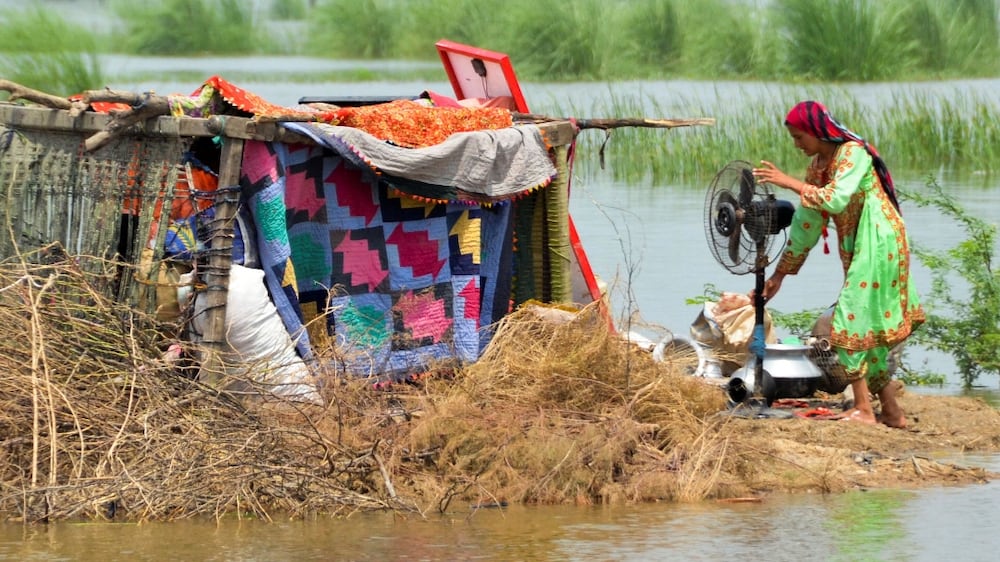
Without the necessary fiscal space, developing countries “cannot make urgent investments on climate action and SDGs”.
Meanwhile, African countries are scheduled to make $64bn in debt repayments this year alone. Fifteen African countries are at risk of external and public debt distress and six are already facing debt distress.
Mr Kerry agreed that developed countries bear the responsibility and the US “should be doing more” as the second top emitter of global emissions after China.
“Twenty countries equal 80 per cent of all the emissions. Forty-eight countries in sub-Saharan Africa all together equal 0.55 per cent of emissions. So you have to begin by framing this in its genuine presentation as a problem,” Mr Kerry said.
While the Paris Agreement adopted in 2015 targets limiting warming of the planet to 2ºC above pre-Industrial Revolution levels and ideally 1.5ºC, “not everyone is doing the things that we said we would do”, he said.
If all countries upheld their commitments, which is not happening, the warming would hold to 1.8ºC by 2050, Mr Kerry said.
Meanwhile, the transition will cost $3.5-$4 trillion a year for the next 30 years, and only $750bn was mobilised last year through venture capital.
“It's not enough,” he said, emphasising the need to unlock funds from the private sector, bring in investment tax credits and create pathways of blended finance.
“No more business as usual. Let's get the job done,” Mr Kerry said.
Odile Renaud-Basso, president of the European Bank for Reconstruction and Development (EBRD), said the bank has invested almost $10 million across Egypt.
“Africa, as a continent, and Egypt in particular, are blessed with extraordinary renewable energy resources. And EBRD is determined to do its best to take advantage of those resources,” Ms Renaud-Basso said.
“We're here at a critical juncture,” said Mark Carney, who is also UN special envoy on climate action and finance. “The stakes could not be higher, particularly in Africa.”
Public and private co-operation, bold action and new ways of mobilising capital are necessary, he said. “We need radical change.”
He announced the newly formed Gfanz Africa Network, chaired by UN Climate Change High-Level Champion for Egypt Mahmoud Mohieldin, to bring private capital to the continent.
President El Sisi concluded with his remarks, emphasising Egypt's actions so far, including being among the first countries to launch a 2030 development strategy “in which the environmental dimension is prominent”.
“I can tell you in all modesty that Egypt may very well be the world's top nation in recycling water. We have a giant programme to use every drop of water,” he said.
Green energy investments constitute 40 per cent of all investments now and are set to increase to 50 per cent in 2024-2025, according to the president.
That is despite the fact that Egypt accounts for 0.6 per cent of the world's carbon emissions, yet it is among the nations worst hit by climate change, he said.
